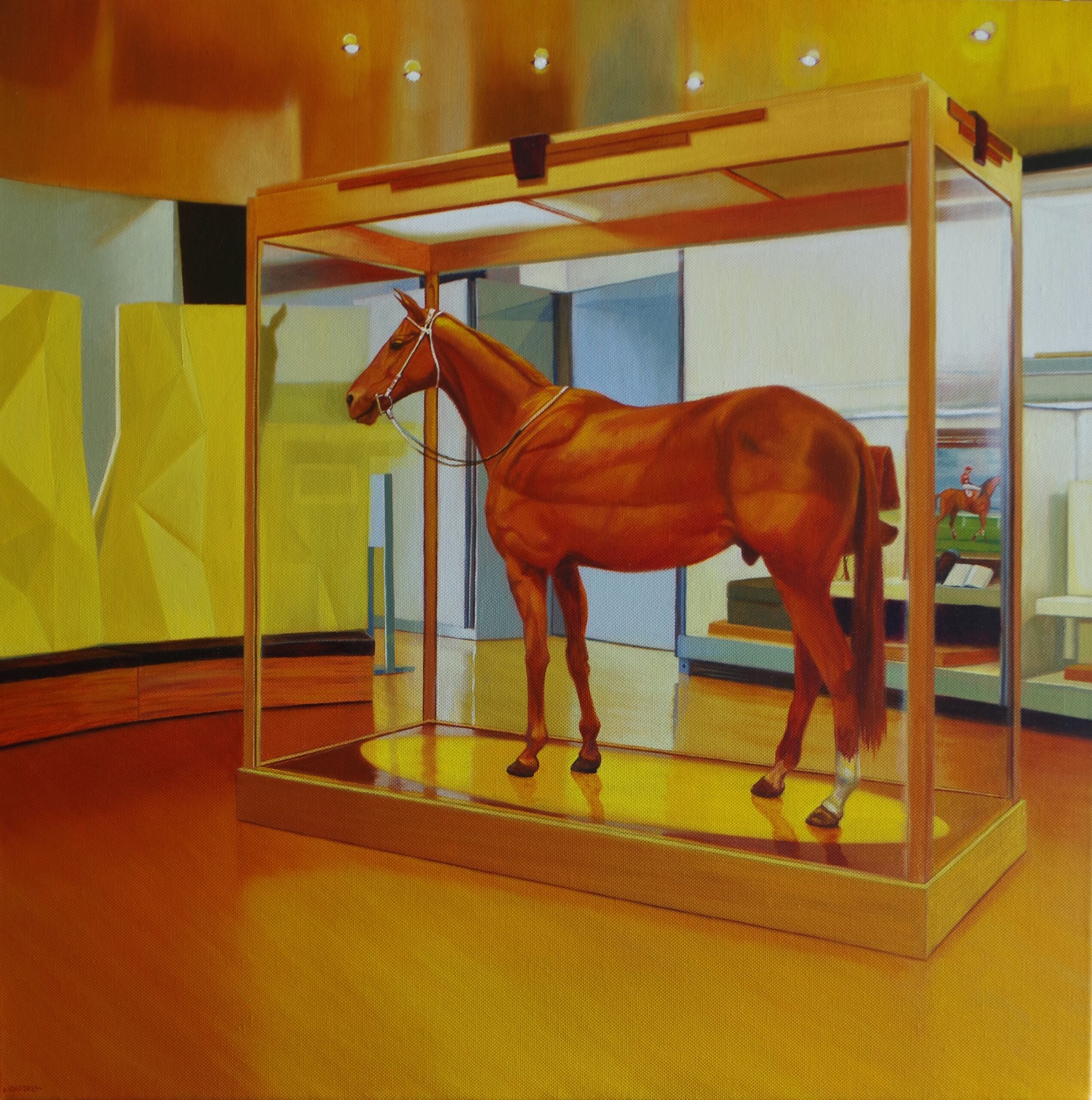Featured in

- Published 20250506
- ISBN: 978-1-923213-07-4
- Extent: 196 pp
- Paperback, ebook, PDF

WHENEVER I REACH for my phone – which is more often than I care to admit, although I suppose I just did – I think of that old thought experiment about the tree falling in a forest. You know the one: if there’s no one around to hear the tree, does it make a sound? A similar principle, I’ve realised, applies to my consumption of online content: if I don’t mindlessly watch those Instagram deep-dives into the duelling lawsuits between Blake Lively and Justin Baldoni or the veritable parade of Easter eggs hidden in Kendrick Lamar’s Super Bowl half-time performance…do I really care?
In a frenzy of New Year determination, I sought to resolve this vexed question by switching my smartphone for a flip-phone with limited internet access. Am I now free from the tyranny of social media and its spoils? Dear reader, I wish it were so: the flip-phone model I purchased on eBay couldn’t read my SIM card properly, but it did have 4G, the result being that I could book an Uber, check my bank balance and listen to a podcast – but I couldn’t make calls or send texts (which, arguably, offered me a different yet equally tempting kind of freedom). I’m back to using a smartphone – well, I never stopped – and marinating myself daily in a useless swill of information.
Our contemporary content malaise feels very recent, yet the twentieth-century media scholars Marshall McLuhan and Neil Postman predicted our technological capture decades before Mark Zuckerberg and his college roommates devised a neat way for their fellow Harvard students to connect online. McLuhan, of course, famously theorised that ‘the medium is the message’; in his remarkable 1992 book Technopoly, Postman – a former student of McLuhan’s – warned: ‘We proceed under the assumption that information is our friend… It is only now beginning to be understood that cultures may also suffer grievously from information glut, information without meaning, information without control mechanisms.’
Sounds familiar: it’s Postman and McLuhan’s world, and we’re all just living in it. But how much longer can we keep scrolling before we reach the end?
THIS EDITION OF Griffith Review seeks to understand the tempestuous liaison between culture and content, and its contributions, both fiction and non-fiction, approach this from myriad perspectives. You’ll parse the dissonance between our digital and corporeal selves; chart the evolution of Australia’s critical establishment in the twenty-first century; contemplate the dangers of digital celebrities; discover what we lose when we give all creative output the anodyne label of ‘content’; consider the implications of cultural heritage in our national literary tradition; explore the tension between artistic freedom and the professionalisation of creativity; examine how commercial imperatives have reshaped the publishing industry; revisit the work of a literary iconoclast; find out what kids these days are really doing online (not as outrageous as you might think); and much more. There’s a lot of information in these pages, but it all has meaning – so I like to think Postman would approve.
This edition features a contributing editor, the fabulous Beau Windon, who commissioned and worked with Alex Creece on her brilliant essay ‘It ain’t easy being twee’. Beau and Alex, thank you both for what you brought to this collection and for being so delightful to collaborate with.
Culture Vultures also includes the third of five outstanding stories to win our 2024 Emerging Voices competition: Emily Tsokos Purtill’s ‘Know thyself’, a sharply observed meditation on fate and mortality. We’re very grateful to the Copyright Agency Cultural Fund for their support of this competition, and we’re looking forward to sharing more winning stories with you later in the year.
Whether you’re reading Culture Vultures in print or online, I hope it offers you new ways of thinking through our technological capture (ideally, ways that don’t end with you being the owner of one-and-a-half phones) and determining which of those falling trees you care to hear.
– February 2025
Image courtesy of Peggy from Pixabay
Share article
More from author

Subject, object
The vivid hues and spiky leaves of Jason Moad’s Temple of Venus – the arresting artwork featured on the cover of Griffith Review 89: Here Be Monsters – raises a tantalisingly sinister proposition. The subject of the painting is clear – a Venus flytrap, realistically rendered – but there’s a somewhat otherworldly quality to this plant, a sense that it might be biding its time, waiting to strike while we, the viewers, are distracted by its beauty. For Melbourne-based realist painter Jason Moad, this slippage between subject and object, reality and imagination, is part of the point.
More from this edition

Culture warrior
Non-fictionIt’s safe to say, then, that Star’s protagonist is not a carbon copy of Mishima, despite the novelist’s status as Japan’s first Sūpāsutā (superstar). Twenty-three and blindingly gorgeous, Rikio Mizuno, known by the anglicised monomer Richie, is a Japanese James Dean. ‘I am a speeding car that never stops,’ Richie muses, conflating the icon with the instrument of his death. ‘I’m huge, shiny and new, coming from the other side of midnight… I ride and ride and never arrive.’ Unlike Dean, Richie survives past his twenty-fourth birthday, the addition of a single year weighing on him like a death sentence. At the story’s conclusion, when Richie is confronted by the crinkled visage of a matinee idol of yesteryear, he realises that having celebrated the twenty-fourth birthday Dean was denied by his Porsche 550 Spyder, ‘Little Bastard’, he has missed his chance to, as Dean said, ‘Live fast, die young and leave a good-looking corpse.’ Anyone who has been to a gay guy’s thirtieth birthday party will recognise the sentiment.

Hidden tracks
Non-fictionYoung and Kucyk are as good at tracking down hard-to-find people as they are at tracking down hard-to-find music, although sometimes they do reach dead ends. Their methods aren’t particularly advanced and are often helped by luck. Sometimes they’ll raid the White Pages. Sometimes they’ll search for relatives of musicians online. Sometimes – as in the case of another song on Someone Like Me – they’ll scour through five years’ worth of archived weekly newsletters from a Seventh Day Adventist Church in the UK and Ireland and spot a tiny article that contains the full name of a mysterious musician they’re trying to find.

Bypassing the gatekeepers
Non-fiction IN THE OPENING scene of the Copa 71 documentary, we see US women’s soccer great Brandi Chastain watch archival football footage on an iPad. (Chastain...